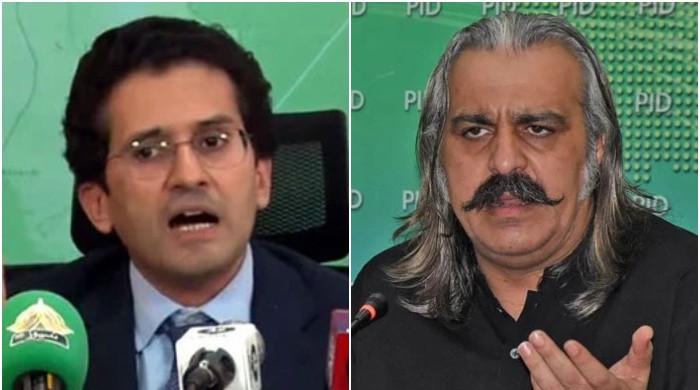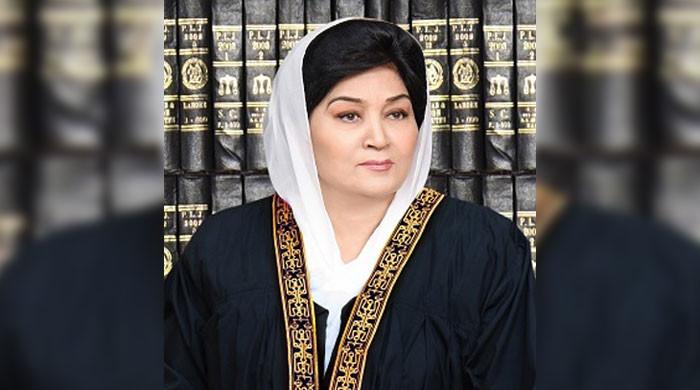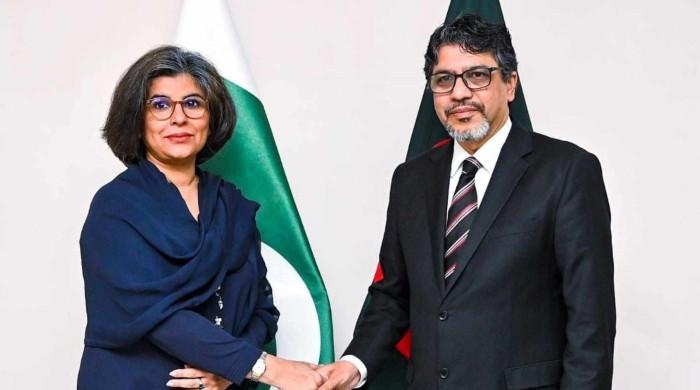Sindh heading fast towards famine due to water shortage, warns provincial minister
Siyal blames IRSA for water shortage, says Sindh only has reserves for 10 days
July 06, 2021
- Sindh only has water reserves for 10 days, says Irrigation Minister Sindh Sohail Anwar Siyal.
- Siyal blames IRSA for water shortage.
- "Sindh, Balochistan punished due to Centre's incompetence."
Irrigation Minister Sindh Sohail Anwar Khan Siyal said Tuesday the province was fast heading towards famine, as he warned the situation would have severe effects on the province.
The irrigation minister, addressing a press conference in Karachi, said Sindh only has 10 days of water reserves and the Pakistan Meteorological Department had also expressed fears of severe consequences due to a drought in 10 districts.
The minister said if there was no rainfall, water for agriculture and human needs would not be available and a severe shortage would affect the districts of Sindh, including Karachi.
Siyal blamed the Indus River System Authority (IRSA) for the water shortage and asked the PTI-led government in the Centre to refrain from "spreading hatred".
Responding to the Balochistan government's warning of cutting Karachi's water supply, he said when Sindh does not have water to fulfil its needs, how will it provide for others.
"Sindh and Balochistan are being punished for the incompetence of the Centre," Siyal added.
Balochistan threatens to cut Karachi's water supply
The Balochistan government, earlier in the day, had warned that it would cut off Karachi's water supply from Hub Dam, as the provinces quarrelled over water shortage.
Balochistan government's spokesperson Liaquat Shahwani, addressing a press conference in Islamabad, had blamed the Sindh government for releasing less water to his province.
"Sindh is supplying 42% less water to Balochistan [...] the province is getting only 7,000 cusecs of water from Sindh," the spokesperson had said.
"Chief Minister Sindh (Murad Ali Shah) had refused to provide Balochistan its due share of water," he claimed.
The spokesperson claimed that due to Sindh's "stubbornness," the province was suffering a loss of Rs75-77 billion. "The Sindh government is hell-bent on turning Balochistan's lands dry."
Shahwani claimed Sindh had not provided Balochistan with its complete share of water in the last 20 years, yet it continues to complain that Punjab has not provided 17% of its share to Sindh.
"Our due right share, according to the Indus River System Authority (IRSA), is 10,900 cusecs, including a shortfall of 30% which is 14,000 cusecs, but Sindh is providing 7,000 cusecs water," he said.
He said the Balochistan government already brought up the issue at various forums but the Sindh government "consistently denied facilitating it."
'Reservoirs received 62% less water than estimated this year'
A day earlier, Chairman Indus River System Authority (IRSA) Rao Irshad Ali Khan had said the country's reservoirs had received 62% less water than estimated this year.
The IRSA chairman made the statement during a meeting of the National Assembly's Standing Committee on Water Resources, with Nawab Yousuf Talpur in the chair.
The IRSA chairman, while briefing the committee, berated the Sindh government and said that on the one hand, it opposes constructing new dams and on the other, it demands additional water supply.
Responding to the IRSA chairman's comments, an MNA from Sindh said the province was not being provided 5,000 cusecs of water, which was reserved as its quota.
On the occasion, Punjab Minister for Irrigation Mohsin Leghari said that the issue should not be politicised. the Council of Common Interests is looking into the matter and has asked the attorney general to resolve it.
A representative of the Attorney General's Office said that the issue of water was more political than technical and should be resolved in the forum of the CCI.
The committee's chairman said that in the next meeting, the attorney general should come in person and give a briefing on the solution of the water distribution problem through IRSA's record.
Meanwhile, the committee was also informed that the country faced a 17% shortage of water supply during the Kharif season.











